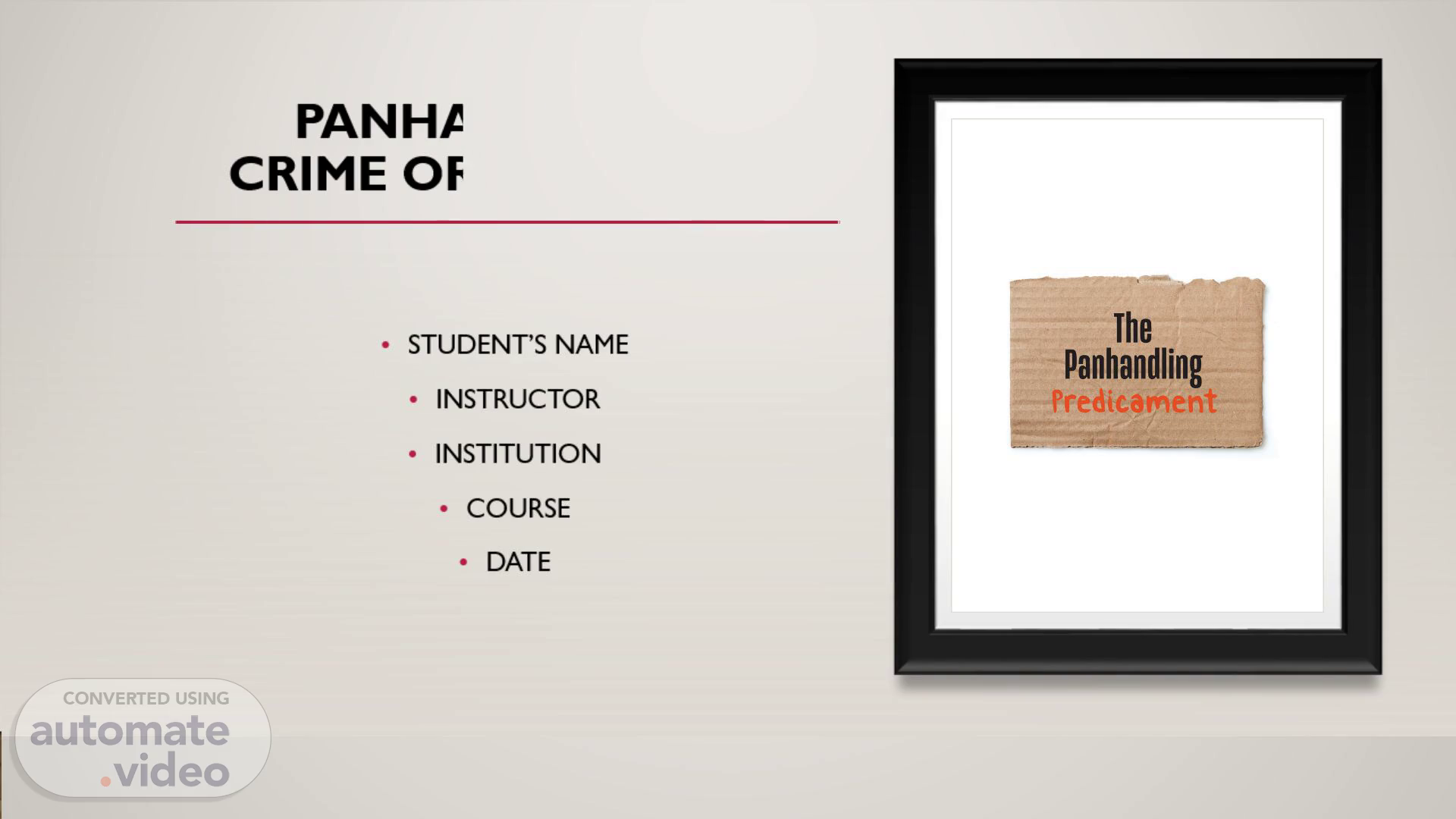Scene 1 (0s)
Panhandling: Crime or Survival?. Student’s Name Instructor Institution Course Date.
Scene 2 (9s)
Introduction. HOmeless Need Hehp Anq±hing Help Cod Hess.
Scene 3 (31s)
Part I: My View on Panhandling as a Crime. Panhandling should not be criminalized because it targets poverty instead of solving it. Many people experiencing homelessness, like Ronald Davis, struggle to find work due to a lack of housing, clean clothes, and a phone. Arresting or fining them only makes it harder for them to escape homelessness. Instead of punishing people for trying to survive, cities should provide resources, shelter, and job opportunities to help them get back on their feet..
Scene 4 (55s)
Part II: Ways to Reduce Panhandling Without Criminalization.
Scene 5 (1m 23s)
[image] Two people holding each other s hands. Part III: Consequences of Criminalizing Panhandling.
Scene 6 (1m 48s)
[image] Spiral Staircase. Part IV: Dallas’ Panhandling Deflection Program.
Scene 7 (2m 13s)
Part V: The ACLU and Panhandling as Free Speech. The ACLU argues that panhandling is protected under the First Amendment because one is requesting aid in a public space. I agree with such an argument. If corporations get to put advertising on the roads and people have the right to carry protest posters, then it should not matter if asking for help is legislated against. Suppressing the panhandlers won't solve the problem; instead, it would make their agony invisible..
Scene 8 (2m 37s)
Sociological Theory Application: Strain Theory. Robert Merton’s Strain Theory explains that when people are denied access to legitimate means of success (like jobs and housing), they may resort to alternative methods, such as panhandling. Society expects people to be self-sufficient, but when structural barriers prevent them from succeeding, criminalizing their survival tactics is unjust..
Scene 9 (2m 56s)
[image]. Conclusion. Panhandling isn't a crime it's a symptom of deeper social ills like poverty, unemployment, and a lack of affordable housing. Making it a crime doesn't address these issues; it only makes life harder for people who are already suffering. Cities must turn to humane and helpful approaches that provide people with a path out of poverty, not punishment. Ronald Davis isn't a "bum“ he's a human being, and our society must treat him as such..
